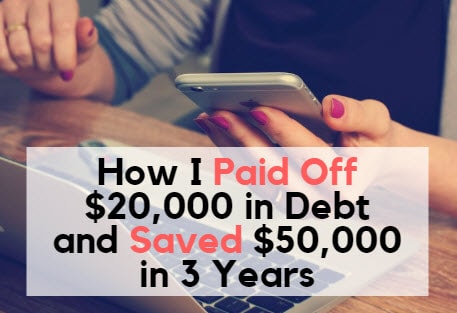For those of you who want to reach financial independence early, I highly encourage you to invest in index funds. It’s one of the three ways I was able to retire in my 30’s. The word “retire” for me means being able to do what I want (which now includes helping others achieve their financial goals as well as work on my passion projects).
The other two ways I was able to reach financial freedom early on in life was through starting and then selling a business and real estate investing. Watch this video and continue reading below for more about how I was able to retire early by investing.
Invest in Index Funds
Investing in index funds is my favorite way that I am able to stay “retired” and devote my time to growing and learning and helping others expand as well. Index fund investing requires little work on my part. And by sticking to a simple savings plan, I saved enough to withdraw a comfortable amount every year to live on without drawing down my account balances. This means my index funds are generating passive income for me to live on!
To get to the point where you are living off of index funds requires a money mindset shift. It requires saving enough by learning to live on half of what you make. When you train yourself to live below your means, a few things happen. You start to live a more frugal, minimal lifestyle, which is not only good for you, but it’s good for the planet. You are no longer wasting money on things that bring you temporary happiness.
It wasn’t until I started to save automatically every month AND also invest in index funds that I started to make real headway with my financial journey.
Related: One of the first things I did to learn more about investing was I signed up to receive investment tips. Check out Motley Fool for great investment tips.
Saving always comes first
Even though I had various debts to tackle through the years, first school debt, then credit card debt, then car loan debt, then business debt, then house loan debt… saving was always the first action I took with my income. Saving in my teens is what gave me the funding to take a risk with my first business. Saving in my twenties is what helped me retire in my thirties. And saving and being frugal now is just a built in habit that allows me to take part in opportunities as they present themselves (for example right now I’m rehabbing a house to turn into a rental).
And because I made these money mindset changes early on in life, I was able to take advantage of compounding. This means I had years of investing to build wealth over time, and it’s why I will wholeheartedly tell you, IF YOU ARE YOUNG, INVEST AS MUCH AS YOU CAN NOW!
If you have been stuck with not being able to increase your savings dramatically, there are probably some significant reasons why. This article will address many of the mistakes I made along the way so you can see what to avoid early on.
*Note: I am not a certified financial planner. I am sharing my experience with how I was able to specifically use low cost index funds in my investment portfolio. This article is intended to help you get started and think about how you can invest in index funds to help you retire early. Seek help from a professional if needed.
Related: You may want to check out a savings app like Acorns. This app helps you tuck away a little savings every time you spend. Super cool and easy to use.
Top things to do to get started with investing your income
Save 50% or more of your income-
If 50% freaks you out, start with a small amount and then incrementally increase it. See more below about how I started with $100 a month in savings. If you are not making enough to save, then consider a side hustle or starting a business so you stop handing over your hard earned money unnecessarily (and stop making someone else rich).
Save automatically-
Every time you get paid or make income, save a percentage. Set up an automatic withdrawl from your checking account into a savings account to start.
Side Note: If you are trying to manage your accounts, you may want to use personal finance software like Quicken. I use Quicken to manage and track all of my income and expenses for my personal life and business. It’s very easy to use and helps me stay organized, especially at tax time.
Educate yourself and take control of your finances by investing your money yourself-
Investing on your own might sound daunting, but the alternative is you will pay thousands by having someone else do it for you. And truthfully, all they will most likely do is tell you to buy and hold your money (which is an approach I agree with, but you don’t need to pay someone thousands of dollars a year to remind you of that!) You should not be touching your investments all that often anyways. There are times to shift and I will cover that below.
Invest in a fund or funds that follow the S&P 500-
The S&P 500 is an American stock market index consisting of a blend of the top 500 large companies. It offers diversity because it consists of many stocks. It’s a good idea to purchase mutual funds known as index funds (an index fund just means the mutual fund follows a particular index, such as the S&P 500). Index funds are a good buy because they usually have low operating expenses. This usually means low fees which often gets passed down to you. These funds also tend to have a lower turnover rate meaning investors stay in them longer.
Side note: I recommend checking out Personal Capital if you are interested in gaining control of your financial situation. Personal Capital is similar to Mint.com, but much better. It’s free, and it allows you to see your whole financial picture, including your investments.
What to do with your money. How to invest in index funds.
- Set up a Roth IRA, SEP IRA or if you are still working, max out your 401K. See below for the steps I took. This will give you an example of how to get started.
- Use your own self-serve brokerage service. I love Vanguard and Fidelity and here’s why. They provide low cost funds. They do not charge every time you need to make a transaction (that’s built into the fund costs). Their platforms are easy to navigate and use. They DON’T try to sell you on the latest greatest idea (that’s really a ploy to make more money off of you).
This is what I do when I invest in index funds, step by step
- Set up both a Roth IRA and a taxable account at either Vanguard or Fidelity.
- Link a bank account to easily transfer your money.
- Set up an automatic transfer of a specified amount into a money market account to start. You’ll need to build up money in a money market fund first to accrue enough to purchase the minimum of an index fund.
- Work your way up to saving 50% of your income. Start with a small amount if saving 50% freaks you out. I started with $100 every month. When this became too easy, I bumped it up to $200, then $500, then $1000 and onwards. Do this EVEN IF you currently have debt.
- Download a few helpful apps. First download the Vanguard or Fidelity app so you can look at your accounts. Then download the Yahoo Finance app. You need a yahoo email account to create watch lists. A watch list is a list of potential funds you will want to “watch” and then possibly invest into.
- Study index funds to invest into- they need to meet a certain criteria (low cost ratio of .10 or lower is great, follows a major index such as the S&P 500, and has a long term uptrending chart). Look at possible funds at Vanguard and Fidelity. These funds have a ticker symbol (series of letters to identify the fund on an stock exchange). Here are some ticker symbols for index funds I watch with Vanguard (VFIAX, VIGAX, VSEQX, VGSLX). Here are some funds I watch with Fidelity (FUSEX, FSTVX). Place your favorite ticker symbols into a watch list on your Yahoo finance app.
- Get in the habit of opening the finance apps daily and looking at the charts for the S&P 500 chart, the Dow chart and the NASDAQ chart. Also look at the charts of the funds you are watching from Vanguard and Fidelity.
- Watch charts daily at first so you start to get a feel for how the market moves up and down. Learn to not react when it moves. Look at the 1 year and 5 year charts to get a better picture of how things perform long term. Once you understand charts a bit more, then scale back and watch charts weekly.
- Once your savings or money market fund has accrued at least $2000, then you are ready to invest in your first index fund. Some funds require more as a minimum so check with the fund prospectus first.
- Set the buy order to invest a sum of money into an index fund. Max out money to an index or mutual fun in a Roth IRA first and then have additional money go into an index or mutual fund in your taxable account.
- Set up an automatic deposit to purchase more shares of this fund monthly. Be consistent and increase your savings if possible
Side Note: Need more ideas for mutual funds for your watch list, head over to Motley Fool.
Tips for what NOT to do when you invest in index funds
- Do not get tempted to try to time the market by buying and selling in and out when the market fluctuates. You cannot time the market! No one can! Not even the most experienced “professionals.”
- Do not keep moving your money around from fund to fund. There are times to shift your investment money out of a fund, and I cover that below.
- Do not trade stocks individually. This is like putting ALL your eggs in one basket.
- Do not wait to invest your money. The market really only moves in huge ways just a few times a year. You CANNOT time when that is going to happen and you will lose out if you are not sitting in a fund waiting for those jumps. If you don’t believe me, read The Five Mistakes Every Investor Makes and How to Avoid Them.
- Do not invest a large portion in bond funds- I get it… fear gets the best of you at times. One of my biggest mistakes was when I decided to transfer my money from growth mutual funds into bond funds. Huge mistake… I lost out on three major jumps in the market all because I wanted to be “safe.” Can you see me smacking my forehead!?!

many books on investing and this one
is by far my favorite.
When do I need to shift my investments around in index funds?
There are times when it makes sense to sell out of an index fund or transfer your money into another fund. Here are the top reasons:
- The fund performance is lagging for over 2 to 3 years. You can compare the fund performance to that of other similar funds or the index it follows, and if it is underperforming, switch to another better performing fund.
- You need the money for a legitimate reason or future investment- for example, you may want to withdraw money from your funds to invest in real estate or a new business. Use this money for smart investments and try to be frugal about spending. Before you cash out, talk to your tax professional about capital gains.
- If you need to offset capital gains at tax time and you have a fund which has experienced significant capital losses, then you may want to sell your mutual funds in order to apply the losses to your gains. Consult with a tax professional on this as well.
What’s important when you invest in index funds
- Be consistent about saving. You can win with investing in index funds if you use dollar cost averaging to your advantage. This means you buy in throughout the entire year on a consistent basis (as soon as you have money available to buy) and you buy on both the dips and peaks of the market.
- Purchase lower fee funds- If you invest with an adviser, they may charge you thousands of dollars. Also, many mutual funds charge high fees. Make sure to read the fine print and buy funds with low fees.
- Re-invest dividends. Dividends go to shareholders who have stayed in an investment for a period of time. You can choose to cash out these dividends or re-invest them. Set your choice to re-invest so your money rolls right back into your investment.
- Don’t touch your account. I know it’s tempting to take money out to splurge on a nice vacation or a new car. But ask yourself if you would rather retire early or have a new car. If you want to reach financial independence sooner, it means you must develop good money habits starting now.
What are your thoughts on investing in index funds? Do you think this will be a a way to help you reach financial independence sooner? What are some of your favorite ways of saving?
Pin It for Later

















7 Comments
Leave your reply.